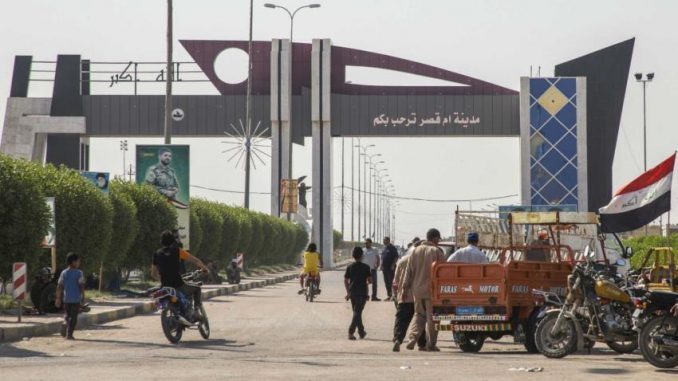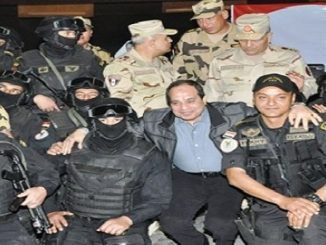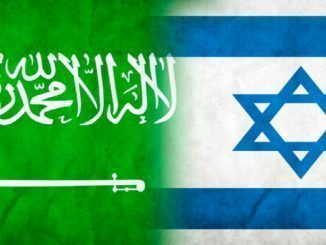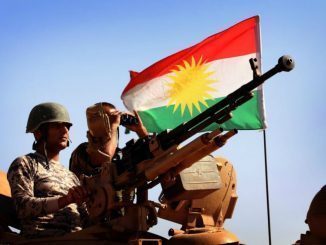
Protesters have occupied Iraq’s main port, blocking important oil transport routes in the south as deadly disruption and anger continues to flare across the country.
Protests in Iraq shut down the country’s key port at Umm Qasr on Wednesday morning, as demonstrators took control of entrances into the facility days after thousands successfully blocked off the highway leading to the port.
Protesters have also cordoned off the road to Iraq’s key Majnoon oil field near the southern city of Basra, while police have closed the road leading to the nearby Iranian consulate.
Protesters have focused their rage on symbols of the Islamic Republic in recent days, attempting to torch the consulate in Karbala on Monday while calling for the end of Iranian meddling in domestic politics.
The latest development comes as Iraqi authorities use more deadly violence to suppress protesters overnight.
Six people have been killed in Basra in the past 24-hours as security forces fired rounds of live ammunition and military-grade tear gas grenades in an attempt to disperse crowds.
US-British condemnation
The US on Wednesday condemned Iraqi authorities’ killing and abduction of unarmed demonstrators by security forces in Iraq.
“We deplore the killing and kidnapping (of) unarmed protesters, threats to freedom of expression, and the cycle of violence taking place. Iraqis must be free to make their own choices about the future of the nation,” the US embassy in Baghdad said in a statement on Wednesday.
The government is also facing joint US and UK pressure to end the on-going internet blackouts that began on Monday night, an official told The New Arab’s Arabic-language service.
Fatal attempts to reach Green Zone
Demonstrations showed no sign of abating in the capital, with one protester killed by smoke inhalation and at least 20 more injured after security forces opened fire on protesters attempting to cross the Al-Shuhada bridge.
Three other bridges have been shut down in an effort to quash the rallies, paralysing traffic in the capital.
Protests have been centered in Tahrir Square, on the eastern bank of the Tigris, as demonstrators have attempted to reach the heavily-fortified Green Zone which lies on the other side and houses government offices and foreign embassies.
Two more protesters were killed in renewed clashes in Karbala on Wednesday, as the holy city becomes a flashpoint of the anti-government demonstrations.
Security forces have killed at least 267 people since early October and wounded over 11,000 during two major waves of protests, deploying snipers and shooting military-grade tear gas grenades at point blank range against protesters.
Iraq’s leaders have promised reforms and early elections, but the process they have laid out could take months, and the protests have only grown in recent days, calling for the premier’s resignation along with overhaul of the country’s political leadership.
A key grievance of popular unrest in Iraq is the corruption and mismanagement that runs through the entire political class, specifically over the country’s vast oil reserves that generate lucrative income.
Despite a recent uptick in oil revenues, public services remain in decline, post-conflict reconstruction remains slow and over a fifth of the population live in poverty.



